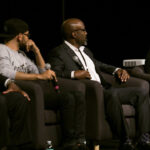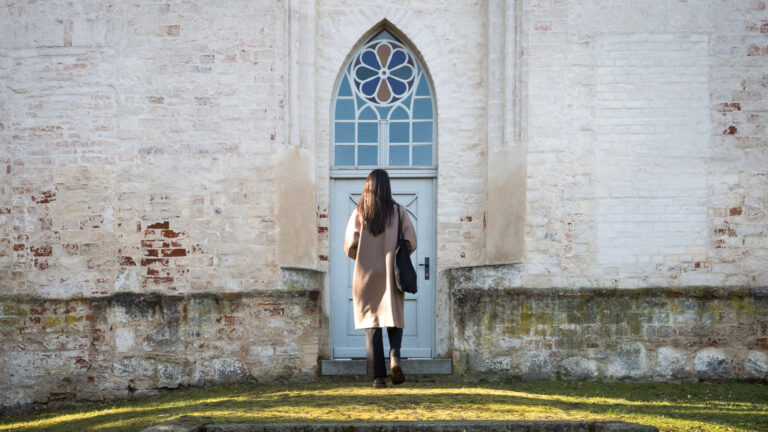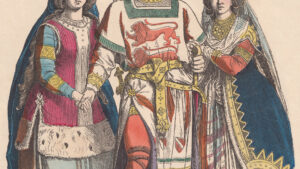The quick and easy answer to why all Christians must seek public justice in their communities is because God commands us to do so.
The charge in Micah 6:8—to do justice, to love kindness, and to walk humbly with our God—is not abrogated in the New Testament. God is just. He has always been just and has always expected, and will always expect, his people to do justice.
Contrary to our modern emphasis on individual rights, the Bible typically—if not, overwhelmingly—frames “doing justice” for the poor, the orphan, the widow, and the immigrant within the context of community. These social and demographic categories of persons are present in every community—from the days of Amos (5:11-15) to today—and, therefore, God’s call to do justice is no less relevant or urgent.
When Christians disengage from the struggle for justice for all people, the adornment of the gospel and the credibility of the church are at stake. The world rarely searches out the claims of Christ but always scrutinizes those who claim to be Christians. The world exegetes our hearts by our actions to test the veracity and attractiveness of our message. When we ignore, discount, or offer simplistic answers to social injustice, then, we tarnish our credibility and diminish the glory of God. As The Gospel Coalition’s Theological Vision of Ministry reads:
We cannot look at the poor and the oppressed and callously call them to pull themselves out of their own difficulty. Jesus did not treat us that way. The gospel replaces superiority toward the poor with mercy and compassion. Christian churches must work for justice and peace in their neighborhoods through service even as they call individuals to conversion and the new birth. We must work for the eternal and common good and show our neighbors we love them sacrificially whether they believe as we do or not. Indifference to the poor and disadvantaged means there has not been a true grasp of our salvation by sheer grace.
Obstacles to the Pursuit
There are several obstacles to our pursuit of public justice. Here, though, I’m only going to focus on four that keep us from making progress on “racial reconciliation” as examples of the types of obstacles that hamper us in general.
- Our discussions are hampered by the poverty of our lexicon. For example, a term like “racism” means different things to different people. Since “race” is a social construct, not a biological or theological one, some people reject that terminology altogether. Additionally, many of us have adopted what Juan Sanchez calls a “talk radio” lexicon that parrots what we hear on the radio or see on the news. This lack of vocabulary to address issues of ethnic animus is a challenge.
- Some evangelicals see “justice” or “public justice” or “social justice” as synonymous with “social gospel” and fear that “doing justice” will somehow threaten the primacy of the preaching of the gospel. Given contemporary church history in America, these concerns have merit. I believe, though, there’s another subtle dynamic at play. Specifically, there is a tendency in certain elements of the Christian community to think and speak in unnuanced binary terms rather than to think in integrative and dynamic terms. You either focus on the ministry of the Word or on serving humanity. People are poor either because of their personal choices or because of the system. These linguistic and attitudinal factors make it difficult for us to have a productive conversation without talking past each other. By contrast, the Bible is clear that poverty has many causes—and that we must balance word and deed to the glory of God.
- Some of us reject the concept of systemic or structural evil altogether, leaving us no category with which to describe what the Bible clearly portrays as beyond the realm of individual responsibility (e.g., Joshua 7, 2 Samuel 21, Daniel 9). This lack of robust biblical framework to address systemic evil fosters a type of psychosclerosis that hampers dialogue.
- The biggest obstacle in our pursuit of public justice is typified by the current tension between minority communities and law enforcement and based on a seldom-acknowledged reality—we live next door to people who live in a different world. The great ethnic chasm in America isn’t as much a divide as an existential disconnect. Black people and white people live in parallel universes. The divergence isn’t clearly seen by the majority culture until crises erupt. Only then are most brought face-to-face with the reality that they know nothing about how “the other” lives. Sadly, for some, even then, “the other” never becomes significant.
Way Forward
Those of us who want to move forward can develop hearts for public justice in our communities by taking some practical steps. Here are some suggestions.
Spend time listening in Samaria. Your Samaria is that place close to where you live, work, and worship, where people are languishing in proximity to abundance, rejoicing despite pain, persevering in the face of harsh economic and educational realties, and aching for someone to listen.
Many Christians will travel across time zones, international borders, and vast oceans to serve others, but never go to the next zip code, across the tracks, or beyond the bridge. This effort doesn’t need to be an evangelistic outreach; it can be as simple as listening to fellow believers who don’t get their news from your favorite channel or who disagree with your politics. As you listen to the narrative of “the other” near you, you’ll discover that some people in your community might as well live on a different planet in terms of how they’re experiencing your city or town.
Practically, your entry into Samaria might be visiting with the pastor of the storefront church you pass by daily. It might be attending a sporting event at the public school to which you’d never send your kids and supporting the team as though you were a parent. It might be going out of your way to develop a genuine friendship—where they do not need you, but you realize that you need them—with someone who apart from your common bond in Christ, you’d never befriend.
Dietrich Bonhoeffer’s life, ministry, and mentality were changed forever because of his friendship with Frank Fisher and his experience teaching the primary boys’ Sunday school class at Abyssinian Baptist Church. Go on a listening tour in Samaria. Listen. Don’t pontificate. You might have a Bonhoeffer experience—to the glory of God and the benefit of your soul.
Try Before You Buy: FREE Sample of TGC’s New Advent Devotional
 Choosing the right Advent daily devotional can be tough when there are so many options. We want to make it easier for you by giving you a FREE sample of TGC’s brand-new Advent devotional today.
Choosing the right Advent daily devotional can be tough when there are so many options. We want to make it easier for you by giving you a FREE sample of TGC’s brand-new Advent devotional today.
Unto Us is designed to help you ponder the many meanings of this season. Written by TGC staff, it offers daily Scripture readings, reflections, and questions to ponder. We’ll send you a free sample of the first five days so you can try it out before purchasing it for yourself or your church.
































